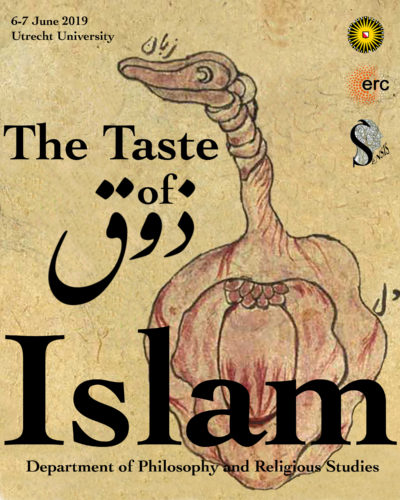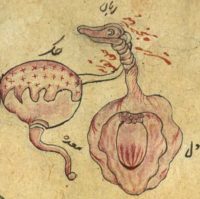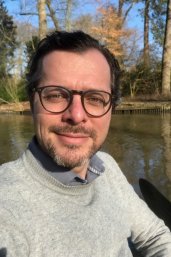International symposium, 6-7 June 2019, Utrecht University, Dpt. of Philosophy and Religious Studies
Location: Academiegebouw, Domplein 29, 3512 JE Utrecht, Kanunnikenzaal
Convened by the SENSIS project at Utrecht University

This symposium seeks to map out the spectrum of meanings related to Arab. and Pers. dhawq (‘taste, tasting’) in the cultural history of the Islamic world. In the European late Middle Ages, theologians like Bernard de Clairvaux gradually came to emphasize taste to illustrate the idea of an intimate, sensory relationship with God. A similar dynamic appears to apply to at least parts of Islamic intellectual history, as the example of al-Ghazali suggest. The Aristotelian hierarchy of the senses, which confined taste to a low rank, circulated widely in the Islamicate world, not least in the falsafa tradition; but ingestion remained a powerful metaphor to capture a variety of modalities of intense, ‘true’ (haqq) human experience, be it in philosophical epistemology, mysticism, (love) poetry, art, aesthetics or indeed culinary culture. The workshop proposes to explore these various trajectories of dhawq and thereby address this compelling dimension of the history of the senses in the Islamic world, and of Islamic cultural history in general. In particular, it seeks to examine the nexus between dhawq as a type of knowledge production and dhawq as a bodily practice, that is, ingestion.
Each paper presentation will be 40 minutes long (30 minutes for the presentation and 10 minutes for Q&A). No registration is required for participation, but those interested in attending are kindly requested to contact the event’s co-organizer Arash Ghajarjazi: a.ghajarjazi@uu.nl
Program
Day 1 (Thursday, 6 June), 14:00pm-17:30pm
Panel 1: Epistemology (chair: Christian Lange)
14:00-14:20: Christian Lange (Utrecht University): “Taste in Islam: Some introductory remarks”
14:20-15:00: David Bennett (University of Gothenburg): “Sense perception in early kalām”
15:00-15:40: Loumia Ferhat (Johns Hopkins University): “Taste in relation to sight and manifestation in Ghazali’s The Niche of Light”
15:40-16:00: Coffee & Tea
Panel 2: Taste and (mystical) love (chair: Eyad Abuali)
16:00-16:40: Yazid Said (Liverpool Hope Universtity): “Al-Ghazali on dhawq as the only sure path to knowledge”
16:40-17:20: Alexander Knysh (The University of Michigan and St. Petersburg State University): “Tasting, drinking and quenching thirst: From mystical experience to mystical gnoseology”
18:30: Workshop dinner for speakers and invited guests
Day 2 (Friday, 7 June), ca. 9:30am-17:30pm
Panel 3: The Poetics of Taste (chair: Simon Leese)
9:30-10:10: Jonathan Lawrence (University of Oxford): “Drunk in love: Intoxication and ingestion”
10:10-10:50: Asghar Seyed-Gohrab (Leiden University): “The gatekeeper to existence: Rumi’s views on the concept of dhowq”
10:50-11:30: Blain Auer (Université de Lausanne): “The ambiguities between taste and pleasure in the Urdu poetry of Ghalib (1797-1869)”
11:30-12:00: Coffee & Tea
Keynote lecture:
12:00-12:30: Barry Smith (University of London): “The philosophy of taste”
13:00-14:00: Lunch
Panel 4: Material and bodily aspects (chair: Arash Ghajarjazi)
14:00-14:40: Sussan Babaie (The Courtauld Institute of Art): “Is ‘taste’ edible? Materiality, intuition and the beautiful in Persian arts of the early modern period”
14:40-15:20: Anya King (University of Southern Indiana): “Medieval Islamic aromatherapy: Medical perspectives on perfume preferences”
15:30-16:00: Coffee & Tea
Panel 5: Modern and contemporary tastes (chair: Christian Lange)
16:00-16:40: Arash Ghajarjazi (Utrecht University): “The taste of cholera: towards a cultural history of corporeal reforms in 19th-century Iran”
16:40-17:20: Jürgen Wasim Frembgen (Munich University): “The Taste of Ethnographic Things: Sensual Aspects of Leisure and Pleasure in Pakistan”
Concluding reflections (until ca. 18:00)



